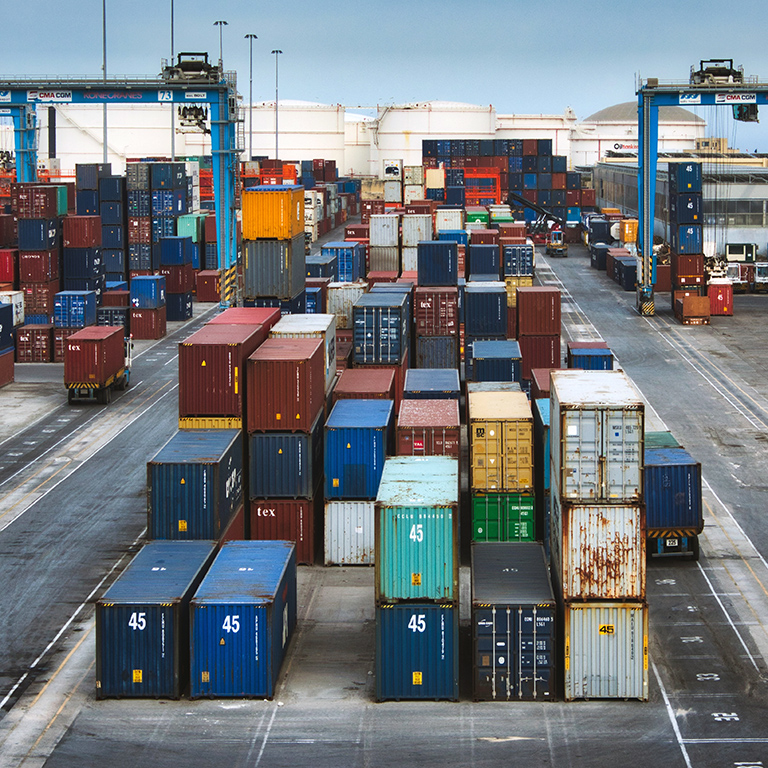
Tim Smith
Global Practice Leader, Trade Credit, Marsh
-
United Kingdom
During such unpredictable economic cycles, businesses need to consistently deliver on performance with security for sustainable growth across the global marketplace. With the backing of trade credit insurance, companies can effectively protect their balance sheets.
Our global Trade Credit team provides a wide range of trade finance solutions that can help you manage your receivables risk. As a leading advisor on trade credit risk and insurance arrangements against potential loss caused by the non-payment of accounts receivables, we nurture strong relationships with major insurers to negotiate cost-effective coverage for your trade credit risk. Our specialist local and multinational service teams also deliver a consistent and compliant service across your trade credit program.

03/25/2025
Proposed tariffs may disrupt trade finance and global supply chains, highlighting the need for robust credit insurance for businesses.

01/14/2025
In this episode Marsh's leaders discuss the various credit risks that could derail a project, and the risk management actions and insurance solutions that can help improve a project’s creditworthiness.

08/01/2024
In the first half of 2024, businesses have navigated various global macroeconomic and political challenges Businesses’ resiliency may be further tested in the months to come.
Trade credit insurance is suitable and of benefit to all types of businesses – irrespective of size, sector, or whether trade is domestic, export, or both. Corporations, financial institutions, and any other business offering goods or services on credit terms to another business should consider obtaining trade credit insurance. It protects your company from domestic default, as well as default by international buyers. For entities that operate on a financial basis that does not necessarily include immediate payment, trade credit insurance provides protection for a company’s assets as business activity scales upward.
Business types that commonly elect trade credit insurance include manufacturing companies, commodity traders, and service providers.
International trade between countries creates and moves the global economy. The flow of goods and services, and prices, can be influenced by a number of factors, including:
Trade credit insurance provides protection against the non-payment of a valid debt by the insured company’s buyer. This coverage usually applies to certain defined events (also termed causes of loss or insured perils).
Trade credit insurers will generally cover two types of risk:
Trade credit insurance supports your ability to extend credit terms to new and existing customers, thereby helping your business grow safely where previously you may have deemed it too risky. It also protects you against the risk of exporting overseas and reduces uncertainty.
Having trade credit insurance coverage can improve access to additional funding against your accounts receivable, as banks are typically more likely to lend more capital to a business that has trade credit insurance in place. As an insured company, your balance sheet will remain protected at a predetermined reimbursement rate (often between 75-90% of debt value), whether your customer has declared bankruptcy or simply cannot (or will not) pay its accounts due. It also helps to free up capital for use elsewhere in your business and helps reduce bad debt reserves.
Typically, a company would look to insure its whole customer portfolio, which is the most common type of policy. It can, however, also be customized to include only selective or key accounts, in the case of higher-risk customers.
Trade credit insurers offer a wide range of flexible products and policies, which are designed to cater for each company’s different coverage requirements. When seeking out such coverage, you should engage with a broker who has experience and expertise with global risk issues and trade finance solutions. Our experts can assist you with assessing and developing your specific requirements and then help you select the most appropriate coverage.
Coverage can be structured in a variety of ways, including:
Whole turnover: This is the most common policy type, which covers a company’s entire trade receivables portfolio under one policy, insuring a wide range of domestic and export transactions.
Each of the policies can cover domestic sales, export sales, or a combination of both – and can be defined regionally or globally. Political risk insurance is often included.
Given all of these options, for many businesses, trade credit insurance remains affordable: coverage costs typically represent less than 1% of sales revenues.
Trade credit insurance is a dynamic product. Credit limit requirements on customers change throughout a policy period, reflecting changing business needs. Therefore, Marsh typically supports its clients in many interactions with insurers to obtain or increase credit limits.

Global Practice Leader, Trade Credit, Marsh
United Kingdom

Global Head of Credit Specialties
United States